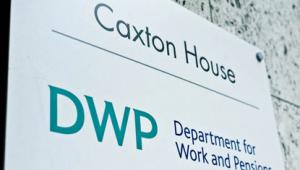By Richard Johnstone | 1 November 2011
More than 1 million people will be moved on to the government’s new Universal Credit benefit by April 2014, Work and Pensions Secretary Iain Duncan Smith has announced.
He today set out the government’s timetable to move 12 million claimants on to the credit, which will combine most existing benefits into one payment.
The government says that the changes will simplify the system to make work pay and combat poverty.
All claimants will be receiving the new benefit by 2017, after the completion of a three-stage transfer, Duncan Smith announced.
Starting in October 2013, new claimants will receive Universal Credit in place of Jobseeker’s Allowance, Employment Support Allowance, Housing Benefit, Working Tax Credit and Child Tax Credit.
An estimated 500,000 existing claimants, their partners and dependants will also move on to the new credit between then and April 2014 as and when their circumstances change, such as when they find work or a child is born.
From April 2014, a second transfer will take place, with priority being given to households that the government says will gain the most from the transition. These include people receiving Working Tax Credit who work a few hours a week and would currently lose more in benefit that they gain in income from working extra hours. The Universal Credit aims to make work pay by tapering the withdrawal of benefits and extending financial support for childcare.
In the final phase, which will begin at the end of 2015 and run through to the end of 2017, around 3 million households will transfer in stages based on local authority boundaries.
The DWP has also announced that the computer system for the new programme is progressing well. Existing technology will mainly be used and 30% of the new software needed is in place, on time and on budget.
Duncan Smith said: ‘Universal Credit is the most radical redesign of the benefits system this country has ever seen. From October 2013 it will replace the current costly, outdated process with a digital system, which will be simpler to use and make work pay for hundreds of thousands of people across the UK.’
Responding to the announcement, John Andrews, chair of the Low Incomes Tax Reform Group, told Public Finance that it was ‘sensible to phase these things rather than have one big bang’.
The group represents the interests of disabled people, carers and pensioners in reforms, and Andrews added: ‘The biggest difficulty I see is explaining [Universal Credit] to people. We have such a variety of vulnerable people receiving benefits, and there is a massive communication exercise to make them understand what it means to them.
‘In times of austerity and cutbacks in government departments, are they able to spend enough on education campaigns?’ he said.






















